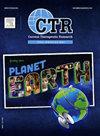雾化碳酸氢钠治疗成人COVID-19 (SODIC)的疗效和安全性:一项随机、单中心、双盲、对照试验
IF 1.5
Q3 MEDICINE, RESEARCH & EXPERIMENTAL
Current Therapeutic Research-clinical and Experimental
Pub Date : 2025-01-01
DOI:10.1016/j.curtheres.2025.100801
引用次数: 0
摘要
背景:严重急性呼吸综合征冠状病毒2型进入宿主细胞是ph依赖性的。因此,用雾化碳酸氢钠进行细胞内碱化可以提高内体pH值,然后阻断病毒进入宿主细胞。目的研究雾化碳酸氢钠辅助治疗冠状病毒病2019 (COVID-19)的疗效。方法在埃及曼苏拉大学医院进行前瞻性、随机、双盲试验。符合条件的患者为所有COVID-19严重程度的18岁患者。患者以电子方式随机分配(1:1)接受标准治疗(对照组)(274例)或标准治疗加雾化碳酸氢钠(272例)。主要终点是临床改善的时间,定义为从诊断到患者报告感觉好转的天数;入院病人的住院时间;和死亡率。该研究已于2021年9月2日在ClinicalTrials.gov注册(NCT05035524),并已完成。在2021年9月2日至2022年4月30日期间,546名患者(215名男性和331名女性)被纳入并随机分配接受治疗。平均(SD)年龄为50.7(16.8)岁。研究显示,研究组临床改善所需时间和住院时间均显著缩短(P <;0.001),死亡人数仅在严重级别的研究组中显著较低(研究组11例,对照组22例,P = 0.014)。研究组重症患者1周时测得的c反应蛋白和d -二聚体水平显著降低(P = 0.001)。在随访的所有时间点,研究组的计算机断层扫描总中位评分均显著高于对照组(P <;0.05)。所有患者最初吸入碳酸氢钠时均报告轻度刺激性咳嗽。未观察到严重的治疗不良事件。结论雾化碳酸氢钠(8.4%)可能是中重度COVID - 19患者的辅助治疗方法。ClinicalTrials.gov识别码:NCT05035524。本文章由计算机程序翻译,如有差异,请以英文原文为准。
Efficacy and Safety of Nebulized Sodium Bicarbonate in Adults with COVID-19 (SODIC): A Randomized, Single-Center, Double-Blinded, Controlled Trial
Background
Entry of severe acute respiratory syndrome coronavirus 2 into a host cell is pH-dependent. Hence, intracellular alkalinization by nebulized sodium bicarbonate could elevate endosomal pH and then block viral entry into the host cells.
Objective
To study the efficacy of nebulized sodium bicarbonate as an adjuvant treatment for coronavirus disease 2019 (COVID-19).
Methods
A prospective, randomized, double-blinded trial was conducted in Mansoura University Hospital, Egypt. Eligible patients were >18 years old with all COVID-19 severities. Patients were electronically randomly assigned (1:1) to receive standard treatment only (control group) (274 patients) or standard treatment plus nebulized sodium bicarbonate (272 patients). The primary end points were time to clinical improvement, defined as number of days from diagnosis until reporting of a better feeling by the patients; length of hospital stay for admitted patients; and mortality. This study was registered at ClinicalTrials.gov (NCT05035524) on September 2, 2021, and has been completed.
Results
Between September 2, 2021, and April 30, 2022, 546 patients (215 men and 331 women) were enrolled and randomly allocated for treatment. Mean (SD) age was 50.7 (16.8) years. Study showed a significantly shorter time to clinical improvement and length of hospital stay in the study group (P < 0.001), and the number of deaths was significantly low only in the severe grade of the study group (11 cases in the study group vs 22 cases in the control group, P = 0.014). C-reactive protein and D-dimer levels measured at 1 week were significantly lower in the severe cases of the study group (P = 0.001). The overall median computed tomography score was significantly better in the study group at all points of follow-up (P < 0.05). All patients reported mild irritative cough initially with sodium bicarbonate inhalation. No serious treatment adverse events were observed.
Conclusions
Nebulized sodium bicarbonate (8.4%) could be a possible adjuvant therapy for patients with moderate and severe COVID‑19. ClinicalTrials.gov identifier: NCT05035524.
求助全文
通过发布文献求助,成功后即可免费获取论文全文。
去求助
来源期刊
CiteScore
3.50
自引率
0.00%
发文量
31
审稿时长
3 months
期刊介绍:
We also encourage the submission of manuscripts presenting preclinical and very preliminary research that may stimulate further investigation of potentially relevant findings, as well as in-depth review articles on specific therapies or disease states, and applied health delivery or pharmacoeconomics.
CTR encourages and supports the submission of manuscripts describing:
• Interventions designed to understand or improve human health, disease treatment or disease prevention;
• Studies that focus on problems that are uncommon in resource-rich countries;
• Research that is "under-published" because of limited access to monetary resources such as English language support and Open Access fees (CTR offers deeply discounted English language editing);
• Republication of articles previously published in non-English journals (eg, evidence-based guidelines) which could be useful if translated into English;
• Preclinical and clinical product development studies that are not pursued for further investigation based upon early phase results.

 求助内容:
求助内容: 应助结果提醒方式:
应助结果提醒方式:


